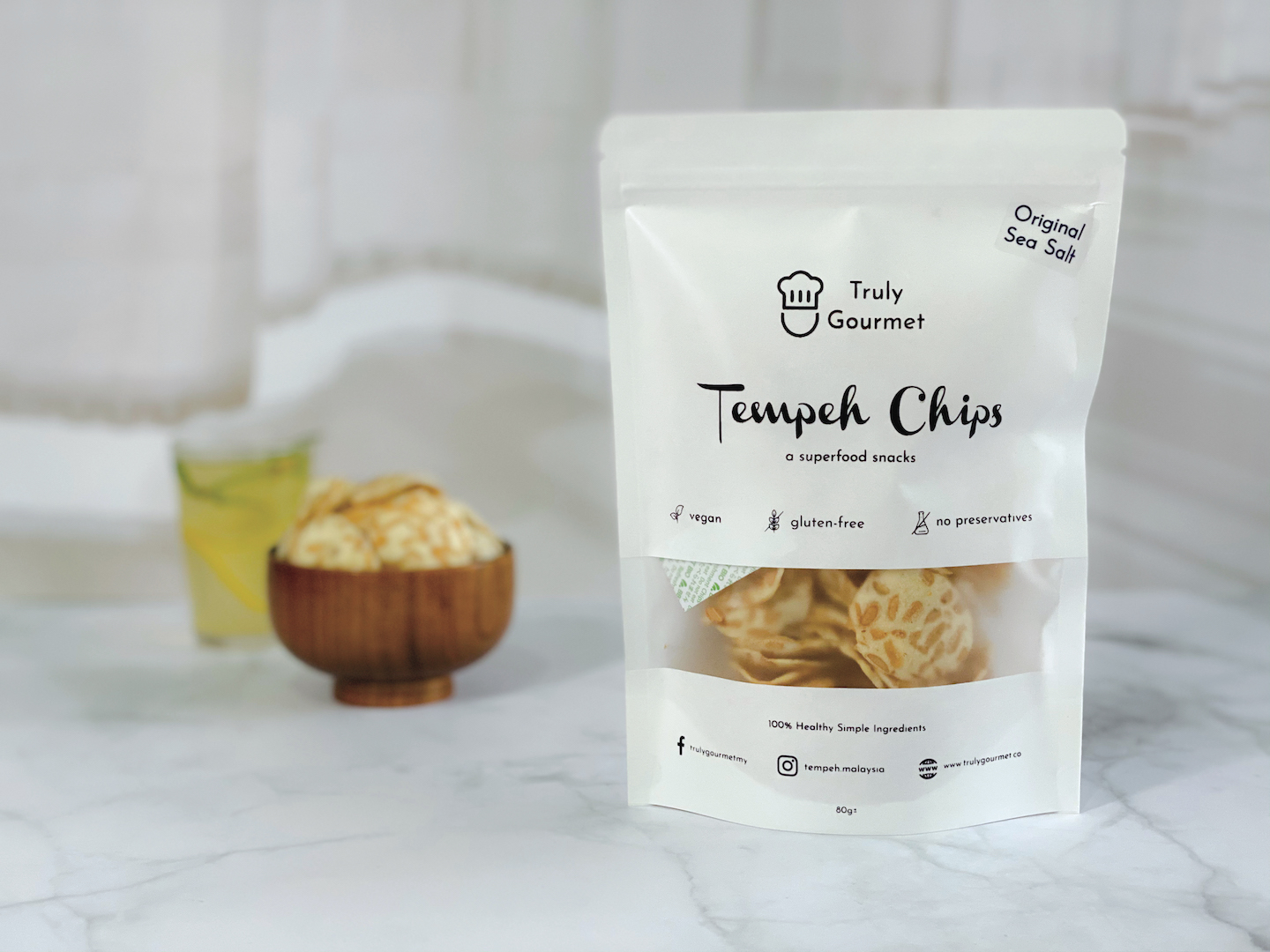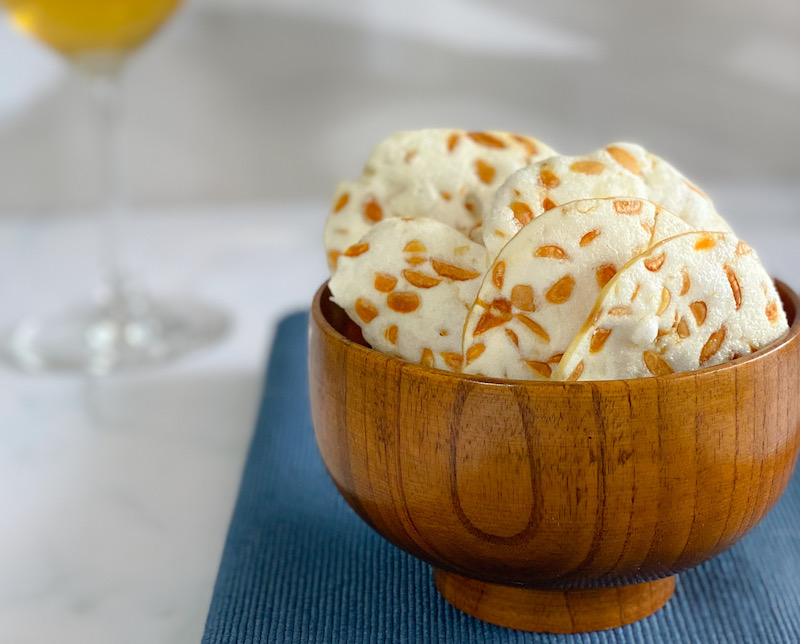
The tempeh chips from Truly Gourmet are made with simple but premium ingredients (All photos: Truly Gourmet)
For those unfamiliar with traditional Indonesian food, tempeh is a fermented soybean product. A popular meat substitute for its high amounts of protein, tempeh is considered a superfood as it contains prebiotics and a wide array of vitamins and minerals, and comes with many health benefits.
Like all misunderstood fermented products, tempeh sometimes has a bad reputation for its flavour and is often labelled as an acquired taste. While I heartily disagree with the naysayers, I was excited to meet the entrepreneur who claimed his tempeh snack was delicious, even to those who normally dislike this product.
Ethan Wong has more than 13 years of experience in the food and beverage industry. Growing up, he was steeped in the wonders of cooking as he was born into a family of chefs. He has worked in the family business Keong Kee Restaurant, been a visiting chef at My Village Restaurant in Guangzhou, China, and has even served as a personal chef in Taiwan. Returning to Malaysia in 2018, he set up his own sourcing company, which required a lot of travel. When the pandemic hit and the Movement Control Order ensued, he had to look for another way to make ends meet.
ethan.jpg

Wong started selling cakes, but that did not pan out. “It was very tedious to bake cakes at home because I only have a small oven. To make a cheesecake takes about 1½ hours. In a single day, I only managed to turn out five cakes, and that is not enough to make a living,” he says.
Having experimented with tempeh in the past, Wong decided to try making chips with it instead. From his research, he knew that tempeh chips, while more common in Indonesia, were unfamiliar to Malaysians. “I spent about six months on R&D to come up with the current product. I did a month of testing with the help of a Facebook group called Entrepreneurs and Startups. I sent out about 150 testers all across Malaysia,” he says. With the feedback, he tweaked his recipe and launched his business, Truly Gourmet, in January.
One of the challenges Wong faced early on, apart from sourcing ingredients while in lockdown, was ensuring that the tempeh chips had a reasonable shelf life. This was especially tricky because he doesn’t use any preservatives. “Currently, the chips can last about two months unopened. Initially, it would only last about a month before going rancid or tasting like ‘masuk angin’. What a lot of people misunderstand is that the main things that will make chips go bad are oxygen, moisture and light. When you buy chips in a supermarket, you realise that 40% of the bag is chips and the rest is air. But the air is actually nitrogen, a neutral gas, so there is no moisture and it keeps your fried food fresh for longer,” he explains.
wechat_image_20201224093017.jpg

This is one of the many lessons Wong learnt when starting Truly Gourmet. “I started by creating a website. That is one of the skills I picked up during the initial MCO. From the photography to the video editing, I did everything on my own. And I have to say that I thankfully had a lot of help from Facebook groups,” he says. As Truly Gourmet’s orders do not meet the minimum requirements to have the packaging printed professionally, he taught himself silkscreen printing and hand-prints all of his packaging.
The tempeh chips from Truly Gourmet are made with simple but premium ingredients — non-GMO soybeans, starter, sea salt, gluten-free flour and rice bran oil — and Wong even ferments the tempeh. The entire exercise is laborious as it takes seven days. “I would say the process is a lot more technical as tempeh is a lot more sensitive than regular chips, especially the fermentation part,” he says.
After selecting the soybeans, Wong soaks them overnight. Next, they are dehulled and cooked before being left to ferment for a few days. Finally, they are sliced and fried. Truly Gourmet churns out about 65 bags of tempeh chips a day. Having indulged in a taste test, I can attest that his efforts have certainly been worth his time. The chips come with just enough salt to make them addictive and the flavour reminds me of my favourite salty potato chips, but these feel less oily and much healthier.
In addition to being available online, Truly Gourmet’s tempeh chips can also be found at selected organic food product retailers and vegetarian cafés in Kuala Lumpur, Ipoh, Johor and Penang. While Wong only sells two variations at the moment — unsalted and with sea salt — he hopes to experiment with new flavours such as salted egg, barbecue and curry. He has big dreams for his tempeh chips and hopes to start a semi-automatic production line.
“Tempeh is one of those flavours that people either love or hate. But these chips don’t have the usual tempeh flavour as it is not as strong. A lot of people tell me things like, ‘My boyfriend doesn’t like tempeh, but he loves your chips’. Or ‘My wife/husband doesn’t eat tempeh, but I forced them to try your chips and they really like it’. So, people love my chips, even if they don’t normally like tempeh,” he says.
This article first appeared on June 28, 2021 in The Edge Malaysia.


